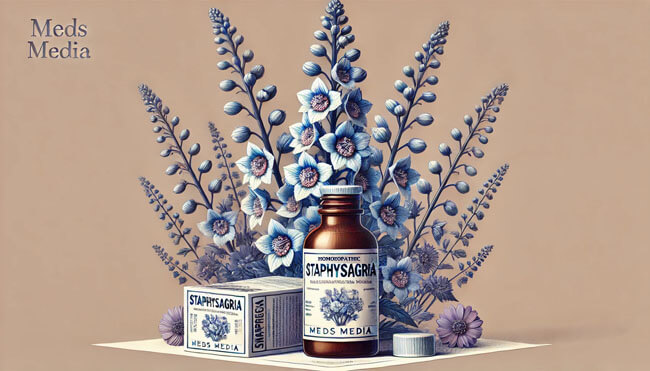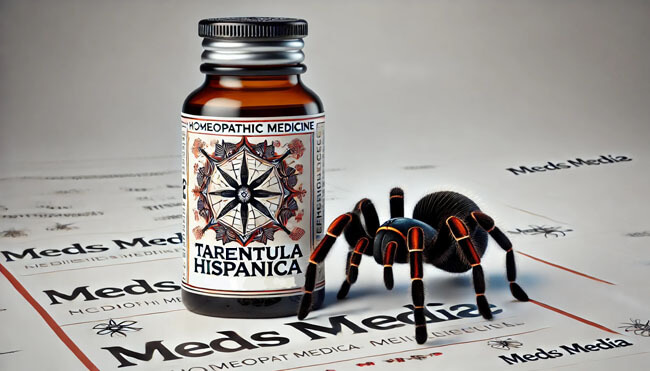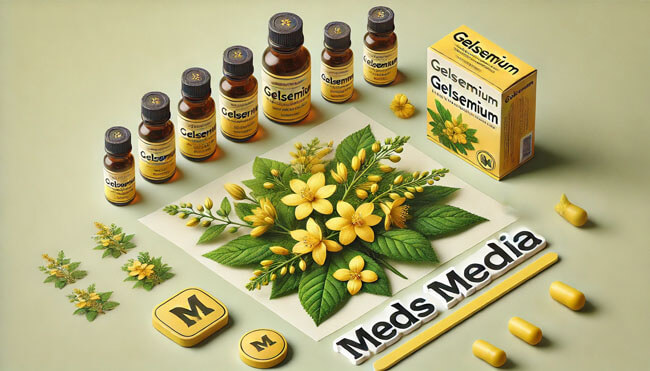
In homeopathy, Staphysagria, derived from the seeds of the Delphinium staphisagria plant, is recognized as a remedy that targets individuals who exhibit specific emotional and physical characteristics. The Staphysagria personality is marked by suppressed emotions, feelings of injustice, and sensitivity to emotional wounds, often harboring deep-seated anger or resentment. Understanding this personality profile is crucial in tailoring treatment, as it helps in addressing both psychological and physical manifestations in patients.
Mental and Emotional Characteristics:
The Staphysagria personality is primarily shaped by emotional repression. Some key characteristics include:
- Suppressed anger: Individuals tend to suppress their emotions, particularly anger, often due to a desire to maintain peace or fear of confrontation. Over time, this internalized rage can manifest as emotional or physical symptoms.
- Sense of injustice: These individuals often feel wronged or unfairly treated but struggle to express their grievances openly. They may have experienced emotional abuse or domination, leading to feelings of powerlessness.
- Emotional sensitivity: They are easily hurt by criticism or harsh words and have a strong sensitivity to humiliation. Even minor slights can lead to deep emotional wounds.
- Submissiveness: While harboring strong emotions internally, Staphysagria individuals often appear mild and submissive, avoiding conflict at all costs. They may feel obligated to tolerate mistreatment.
- Repressed sexuality: There may be a history of sexual repression or trauma, leading to difficulties with intimacy and relationships.
These individuals often present a calm demeanor on the surface but are emotionally volatile underneath, with potential for emotional outbursts when their limit is reached.
Physical Characteristics:
Physically, the Staphysagria personality is characterized by:
- Tendency for infections: Individuals are prone to recurring infections, particularly of the urinary tract and skin. There may be a history of cystitis or other related issues.
- Teeth issues: They often suffer from dental issues such as toothaches, particularly following grief or emotional trauma.
- Skin problems: There may be the presence of styes, boils, or eczema, reflecting the suppressed emotions manifesting physically.
- Tendency for nervous system disorders: Complaints like nervous tremors, headaches, or twitching may arise from their emotional turmoil.
- Sleep disturbances: Insomnia or unrestful sleep is common due to pent-up emotions or unresolved anger.
Physical complaints often appear after a period of emotional repression, and there is a marked connection between emotional and physical ailments in these individuals.
Behavioral Patterns:
- Passivity and tolerance: Staphysagria individuals often tolerate unacceptable situations, such as emotional or physical abuse, without outwardly expressing dissatisfaction. They are passive in the face of conflict but may harbor deep-seated resentment.
- Emotional outbursts: After extended periods of emotional repression, they may experience sudden, intense outbursts of anger or tears, seemingly disproportionate to the situation.
- Perfectionism: They may strive to appear perfect or faultless to others, leading to internalized stress and frustration.
- Overcompensation in relationships: In relationships, Staphysagria personalities may go out of their way to please others, often to their own detriment. This leads to feelings of being taken advantage of, further exacerbating their sense of injustice.
Associated Diseases:
The Staphysagria personality is linked with a range of psychosomatic and physical conditions, often emerging due to emotional suppression:
- Urinary issues: Cystitis, frequent urination, and other urinary tract infections are common, especially following emotional upsets.
- Skin problems: Eczema, styes, abscesses, and other skin eruptions, particularly around the face and eyelids.
- Digestive disorders: Gastrointestinal complaints like bloating or colitis can be related to unresolved anger and stress.
- Chronic fatigue: Individuals may experience exhaustion, both emotionally and physically, stemming from internalized tension.
- Sexual dysfunction: Repressed sexuality or trauma can manifest as sexual disorders, often related to past emotional abuse or trauma.
Miasmatic Personality of Staphysagria:
In homeopathy, Staphysagria is associated with the sycotic miasm, a classification of chronic disease predispositions. The sycotic miasm often relates to the overgrowth of tissues (warts, cysts) or suppressed emotions leading to psychological or physical disturbances.
- Sycotic miasm: This miasm represents a tendency toward suppression and the overproduction of symptoms, whether physical (such as tumors or cysts) or emotional (suppressed anger, fear, or resentment). Staphysagria individuals exhibit this miasmatic pattern in their inability to release negative emotions, leading to chronic health issues over time.
Lycopodium Clavatum Personality Comparison:
Lycopodium is another homeopathic remedy often compared to Staphysagria due to certain similarities, such as suppressed emotions and digestive issues. However, Lycopodium personalities are typically more outwardly assertive and prone to arrogance, contrasting with the more submissive and self-sacrificing nature of Staphysagria individuals. While Lycopodium individuals may hide their insecurities behind a façade of confidence, Staphysagria patients internalize their grievances, making them appear more mild-mannered but emotionally volatile when triggered.
Conclusion:
Understanding the Staphysagria personality is key to applying this homeopathic remedy effectively. By recognizing the emotional repression, sense of injustice, and the deep connection between emotional and physical symptoms, practitioners can better tailor their approach to treatment. This remedy is particularly useful for individuals who struggle with bottled-up emotions and those experiencing related physical complaints, such as urinary infections, skin problems, and digestive disorders.
STAPHYSAGRIA: HOMEOPATHIC MATERIA MEDICA
Why Meds Media guides are different
We focus on clear, practical explanations of homeopathic and natural health topics so you can understand remedies, symptoms, and lifestyle changes in simple language.
Meds Media is an educational resource only. Always consult a qualified doctor or homeopathic practitioner before starting, stopping, or changing any treatment.
Similar Posts You may also like
Zincum Picricum Homeopathic Medicine & Personality | Uses, Benefits & Indications
Zincum Phosphoricum Homeopathic Medicine & Personality | Uses, Benefits & Indications
Zincum Iodatum Homeopathic Medicine & Personality | Uses, Benefits & Indications
Zincum Bromatum Homeopathic Medicine & Personality | Uses, Benefits & Indications
Zea Homeopathic Medicine & Personality | Uses, Benefits & Indications
Zincum Aceticum Homeopathic Medicine & Personality | Uses, Benefits & Indications
Zincum Cyanatum Homeopathic Medicine & Personality | Uses, Benefits & Indications
Zincum Muriaticum Homeopathic Medicine & Personality | Uses, Benefits & Indications
Zincum Oxydatum Homeopathic Medicine & Personality | Uses, Benefits & Indications
Zincum Sulphuricum Homeopathic Medicine & Personality | Uses, Benefits & Indications

Phosphorus Homeopathic Medicine & Personality | Uses, Benefits & Indications
Causticum Homeopathic Medicine & Personality | Uses, Benefits & Indications

Veratrum Viride Homeopathic Medicine & Personality | Uses, Benefits & Indications

Spongia Tosta Homeopathic Medicine & Personality | Uses, Benefits & Indications

Zingiber Officinale Homeopathic Medicine & Personality | Uses, Benefits & Indications

Sulphur Homeopathic Medicine & Personality | Uses, Benefits & Indications

Tarentula Hispanica Homeopathic Medicine & Personality | Uses, Benefits & Indications

